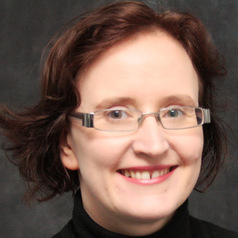
Ruth Dalton
Professor Dalton is an alumna of University College London. As a licensed architect, she has worked for Foster and Partners (London) and Sheppard Robson Corgan Architects (London) and key projects upon which she has worked include the Carré d’Art de Nîmes, in France, the Palaçio de Congresos in Valencia, Spain, and the Kings Cross International Terminal (unbuilt). She has taught at the Architectural Association, London, the Georgia Institute of Technology, Atlanta, USA and the Bartlett School of Architecture, UCL.
Professor Dalton’s research interests are centred around the relationship between the spatial layout of buildings and environments and their effect on how people understand and interact in those spaces. Professor Dalton is an expert in space syntax analysis and is passionately interested in the use of virtual environments as a method for researching human factors in the built environment.
Less ![]()
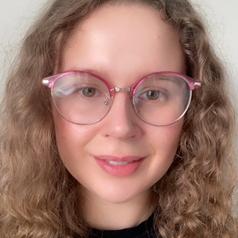
Ruth Duffy
Research Fellow, School of Arts, English and Languages, Queen's University Belfast
Ruth is a historian of medical and oral history. Her expertise lies in modern British and Irish history; the Troubles, medicine, Irish society and culture. She particularly focuses on using oral history as a method to uncover hidden or sensitive histories.
Ruth's first book on the experiences of the Northern Ireland Health Service during the Troubles will be published soon by Liverpool University Press.
Ruth is currently a Research Fellow at QUB working on a project investigating 'mixed marriage' in Ireland. They are actively looking for interviewees for the project. You can find out more here: https://www.qub.ac.uk/sites/acts-of-union/
Less ![]()
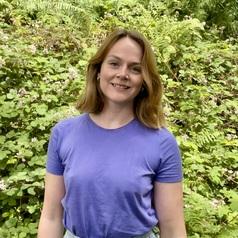
Ruth Dunn
Senior Research Associate in Marine Ecology, Lancaster University
Ruth Dunn is a Senior Research Associate at Lancaster Environment Centre. She researches the ecology and conservation biology of marine systems with a focus on marine predators.
Less ![]()
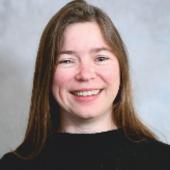

Ruth Knight
Researcher, Queensland University of Technology
Dr. Ruth Knight, a researcher and lecturer at Queensland University of Technology, specialises in managing nonprofit organisations and social enterprise. Using reflective practice and strategic thinking, her research focuses on leadership, social innovation, and evaluation. She is the co-editor of the internationally recognised Handbook of Research Methods for Organizational Culture and champions well-being at work and inclusive workplace environments.
Less ![]()
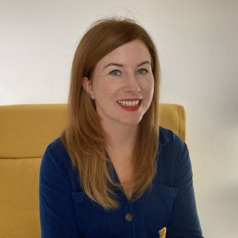
Ruth Lightbody
Senior Lecturer in Politics, Glasgow Caledonian University
Ruth Lightbody is a senior lecturer at Glasgow Caledonian University and a Senior Fellow of the Higher Education Academy. She joined Glasgow Caledonian University in 2014 after completing an MSc in Political Research from the University of Strathclyde. She was awarded a PhD from the University of the West of Scotland in 2016 which looked at the role of public hearings in institutionalising deliberative democracy to promote environmental policy making.
Ruth's principle research interests are deliberative democracy, public participation and community engagement, and how they can be used to implement policy changes which tackle social inequalities and environmental issues. She has established a reputation as a renowned expert in the area of deliberative democracy and community engagement, providing guidance to the Scottish Government, the Royal Society of Edinburgh, What Works Scotland and other third sector organisations, policy actors and organisers of democratic innovations.
Ruth was awarded a Fellowship at the Scottish Parliament in 2023 exploring the core principles of participative democracy and developing a framework for measuring impact.
Less ![]()
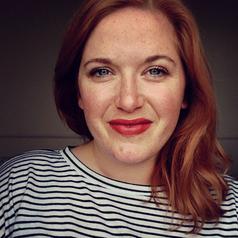
Ruth Luzmore
Research Fellow, University of Southampton
Ruth is currently working on the Ideas-Informed Society, researching how and why people engage with information and evidence to make decisions in their daily lives. In addition she works a consortium EU Horizon funded project, MEGASKILLS, with the objective is to contribute to the development of the European Skills Agenda by bridging the gap between the educational offer and the labour market through the research and design of an innovative and affordable methodology for training and evaluating soft skills through gaming.
Ruth worked for just under twenty years in state schools in England in a variety of posts in Primary and all-through schools including teaching assistant, class teacher before eventually becoming a headteacher. Ruth has a strong interest in educational leadership in particular how school leaders design and enact continuing professional development in their settings and the nature of inter- and intra- professional learning networks in schools. After leaving full-time work in schools, she worked as a freelance researcher as well as supporting the research, writing and editing of books. She works part-time for National Institute of Teaching and Education as a part-time lecturer and mentor for school leaders on their MA in Educational Leadership
Less ![]()

Ruth Mottram
Climate Scientist, National Centre for Climate Research, Danish Meteorological Institute
I am a climate scientist (specialism in glaciology and ice sheet – climate interactions) in Denmark.
I’ve been working at DMI for 14 years where I mostly run high resolution regional climate models in the polar regions and work on ice sheet processes. Much of this work is focused on understanding how quickly the big ice sheets (especially Greenland) will lose their ice and contribute to global sea level rise. Living only around 10 metres above sea level focuses the mind a bit..
Less ![]()
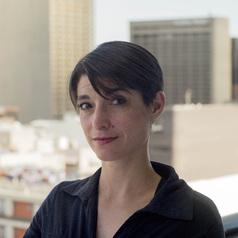
Ruth Sacks
Senior Lecturer in Visual Art, University of Johannesburg
Dr Ruth Sacks is an academic and visual artist whose research interests include southern cities in the Anthropocene, decolonising design and post independence aesthetics in Africa.
Sacks’ first academic monograph, Congo Style: From Belgian Art Nouveau to African Independence, was published by Michigan University Press in 2023. Her most recent artist book, The Remaindering, launched in 2022.
Sacks is a senior lecturer at the University of Johannesburg’s Faculty of Art, Design and Architecture (Visual Art Department) and she is a research associate at the Wits Institute for Social and Economic Research.
Sacks was one of the co-directors of the large-scale group project Response-ability at the Joubert Park Greenhouse Project (Johannesburg, 2020-1).
Less ![]()

Ruth Starr
Lecturer in History of Japanese art and architecture, Trinity College Dublin
I am primarily an historian of Japanese art (including Japanese crafts) from the earliest times to the 20th century. My current research seeks to untangle the web of connections linking Japanese art and European art, following the common thread of lacquerware. My major interest is how these links were manifest in Ireland during the Japonisme movement of the late 19th Century, particularly the Japanese influence on Eileen Gray, (1878- 1976); also Japonisme in 19th and 20th century Ireland and lacquerware in Japan and Europe.
Most of my teaching is on the Arts of Japan. I devised and instigated a non-western art course for second year History of Art Students. I have taught structured support sessions for extra-mural students complimenting these Art of Japan lectures. I also lecture in Japanese ceramics. I taught in the Board of Education, Matsue, Japan, for a number of years. I have been closely associated with the Chester Beatty Library and Gallery of Oriental Art, the primary Irish resource for Asian art; and I have been guest lecturer at major cultural institutions, including the National Museum of Ireland and National College of Art and Design.
Less ![]()

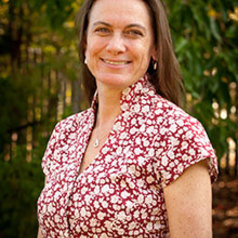
Ruth Wallace
Director, Northern Institute, Charles Darwin University
Professor Ruth Wallace is the Director of the Northern Institute. Ruth leads the Workforce Development, Migration and Pathways to Learning theme which focuses on collaborative approaches to workforce development and engagement with community, governments and industry that are sustainable and scalable. Ruth is the former ‘Secure Futures’ Program Leader for the Plant Biosecurity Cooperative Research Centre, with a focus on building resilience through community engagement and collaborative knowledge and management systems for biosecurity surveillance. In February 2016, Ruth became the first female Australian researcher to be awarded a Fulbright Distinguished Chair in Agriculture and Life Sciences (sponsored by Kansas State University).
Research Interests
Ruth has a strong relationship and working history with Vocational Education and Training – across regional and remote WA, QLD and NT in VET. Her PhD focuses on the needs of learners in regional areas in relation to education and education systems. Her research interests relate to the links between identity, marginalised learners and the development of effective learning and workforce pathways. This work is situated in regional and remote areas of Northern Australia, and undertaken with Aboriginal people in remote and regional areas. Ruth’s research connects to mobile learning pedagogies, literacy and numeracy learning and approaches to workforce development in remote enterprises.
Her areas of expertise include:
Workforce development in regional and marginalised areas
Policy implementation in regional areas
Regional development and growth in remote areas
Mobile end technology based learning
Learning identity
Aboriginal enterprise development in remote areas
Regional development and governance in Northern Australia and neighbouring regions
Marginalised learners and access to knowledge systems
Community engagement
Less ![]()
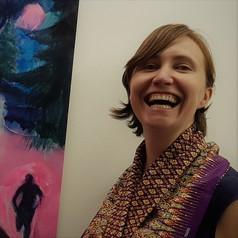
Ruth Wells
Senior research fellow, Psychiatry and Mental Health, UNSW Sydney
Ruth Wells is a Senior Research Fellow in the Trauma and Mental Health Unit, in Psychiatry and Mental Health at the University of New South Wales, Sydney, Australia. Their research focuses on improving MHPSS service provision in humanitarian settings globally and bringing to light how conflict and social exclusion can impact on the well-being of displaced communities.
They bring a feminist and decolonizing lens to critically evaluate mental health services towards being more person-centred, equitable and inclusive. They have a strong commitment to participatory research practices and are humbled to have the opportunity to work together with Syrian Turkish, Bangladeshi colleagues, as well as people from refugee backgrounds living in Australia.
Ruth currently leads teh Caring for Carers study, quasi-experimental study across Turkiye, Syria and Bangladesh. The program investigate the impact of a clinical supervision intervention on the wellbeing of mental health practitioners working with Syrian and Rohingya refugee communities in these areas. The project also examines the impact of supervision on the quality of services provided from the perspective of service users in these refugee communities.
https://www.c4csupervisionmhpss.com/
They were awarded a 2023 Springer Nature Inclusive Health Research award in recognition of their innovative inclusive practice in research. In particualr, this award supports their work with the Rohingya Advisory Committee in Bangladesh which aims to provide avenues for Rohingya people to contribute to public debate about their communities health needs.
https://www.nature.com/immersive/inclusivehealthresearch/winners/index.html
https://figshare.com/articles/online_resource/Caring_for_Carers_A_psychosocial_supervision_intervention_for_mental_health_practitioners/23703636?file=42262866
Less ![]()
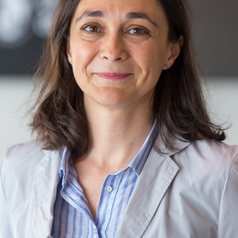
Ruth Gutiérrez Delgado
Profesora titular de Guion, Epistemología y Poética audiovisual, Universidad de Navarra
Ruth Gutiérrez Delgado es profesora titular de Guion y de Epistemología en la Facultad de Comunicación de la Universidad de Navarra. Ha impartido clases de Storytelling y Poética en el Máster de Investigación en Comunicación, en el Máster Ejecutivo de Reputación Corporativa y en el Máster de Guion audiovisual de dicha universidad. En la actualidad también es Profesora Visitante del Programa de Doctorado en Comunicación de la Universidad de Los Andes (Chile) e Investigadora Colaboradora de la Línea de Investigación Mito, conocimiento y acción de la Universidad Panamericana de México (campus Aguascalientes). Obtuvo su doctorado con una tesis sobre Lo heroico en el cine de John Ford (2004). Su investigación está centrada en la Poética y retórica audiovisuales, el mito y el héroe. Ha realizado estancias de investigación en Reino Unido, Irlanda, Alemania e Italia, así como estancias docentes en Polonia, Colombia y Chile.
Less ![]()
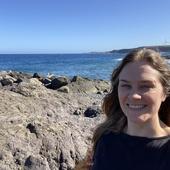
Ruth H. Thurstan
Associate Professor in Marine and Historical Ecology, University of Exeter
Less ![]()
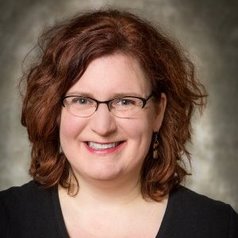
Ruth K. Hansen
Assistant Professor of Nonprofit Management, University of Wisconsin-Whitewater
Ruth K. Hansen is an assistant professor at University of Wisconsin-Whitewater’s College of Business and Economics, and director of the Institute for Nonprofit Management Studies. She teaches classes in nonprofit organizations, fundraising, organizational behavior, and research methods. Her research focuses on the theory & practice of fundraising, and equity and inclusion in resource mobilization. Dr. Hansen has more than 20 years’ professional experience as a fundraiser, and is a former board member of AFP-Chicago.
Recent publications include “Applying a stakeholder management approach to ethics in charitable fundraising,” and “Researching fundraising relations: Interpretivist research practices and practitioner researchers in fundraising and nonprofit studies” with Lesley Alborough, both in the Journal of Philanthropy and Marketing. She contributed the chapter, “Theory in Fundraising,” to the new edition of Achieving Excellence in Fundraising. A chapter with with Gregory Witkowski introducing the Cross Sectoral Bias Theory is included in the book Reimagining Nonprofits: Sector Theory for the 21st Century, edited by Eva Witesman and Curtis Child, coming in early 2024. Her work with Lauren Dula, supported in part by a grant from the AFP Foundation for Philanthropy, focuses on charitable giving appeal letters and giving on impulse.
She holds a BA in Music (Rutgers College), an MJ in Business Law (Loyola University Chicago), and a Ph.D. in Philanthropic Studies (Indiana University).
Less ![]()
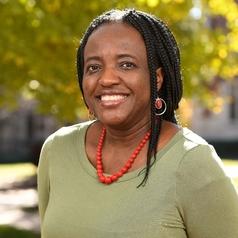
Ruth Uwaifo Oyelere
Associate Professor of Economics, Agnes Scott College
Ruth Uwaifo Oyelere holds a Ph.D. from the University of California, Berkeley and was a pre-doctoral fellow at Yale University. She is currently an Associate Professor at Agnes Scott College. Professor Oyelere’s research interests include education, conflict, housing, social networks, inequality and poverty. Her past research is published in leading economic journals.
Less ![]()
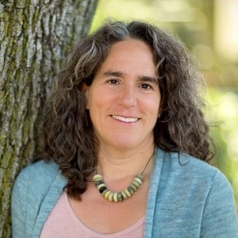
Ruthann Rudel
Visiting Scholar, Social Science Environmental Health Research Institute, Northeastern University, Northeastern University
Rudel’s research has been conducted in collaboration with co-investigators at Harvard University, Brown University, Tufts University, University of California, Berkeley, University of Florida, the U.S. Geological Survey, and the U.S. Centers for Disease Control. She has an appointment as a Research Associate in the Department of Pathology and Laboratory Medicine at Brown and is currently serving on the US EPA’s Scientific Advisory Committee on Chemicals for TSCA.
Rudel leads the Silent Spring Institute’s exposure and toxicology research programs focusing on endocrine active chemicals and on mechanisms by which chemicals may influence breast cancer risk. Her work in toxicology includes a review of early life exposure to chemicals that alter mammary gland development and implications for testing protocols and risk assessment, published in Environmental Health Perspectives. She also directed a major review of animal mammary gland carcinogens—published in Cancer in 2007—that compiled existing research on these carcinogens, reviewed key issues in study design and animal models, and synthesized information on exposure opportunities. Building on these findings, her 2014 review in Environmental Health Perspectives identifies methods for detecting metabolites of 100 prevalent mammary carcinogens, for use in biomonitoring and in breast cancer cohort studies. She has published on toxicology and risk assessment for metals, indoor air pollutants, and endocrine disruptors.
Rudel earned her B.A. in chemistry and neuroscience from Oberlin College, and an M.S. in environmental management and policy from Tufts.
Less ![]()
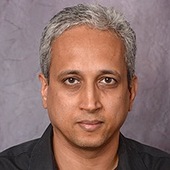
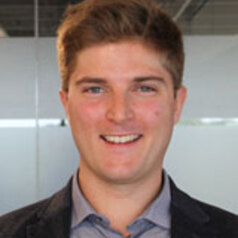
Ryan Atkinson
Postdoctoral Fellow, Defence Policy, Carleton University
Ryan Atkinson is Postdoctoral Fellow at Carleton University where his research focuses on defence policy. He previously worked at NATO and has experience in the private sector as a cybersecurity consultant. Ryan completed a PhD from Western University and an MA from the University of Toronto.
Less ![]()
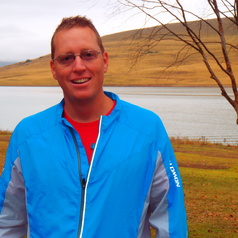
Ryan Blumenthal
Blumenthal. Ryan, MBChB (Pret), MMed (Med Forens) Pret, FC For Path (SA) Dip For Med (SA) PhD (Wits) Senior specialist forensic pathologist at the University of Pretoria’s Department of Forensic Medicine. His chief field of interest is the pathology of trauma of lightning (keraunopathology). He has been involved in the publication of numerous articles and textbooks on lightning and electrothermal injuries and has helped generate international standard operating procedures and guidelines for lightning strike fatality and electrocution victims. He has published widely in the fields of suicide and other areas involving the pathology of trauma. His chief mission in life is to advance Forensic Pathology Services both nationally and internationally. Interests outside of forensic pathology include sleight-of-hand-magic, mountain-biking, bird-watching, squash, running and novel writing. He also has a personal interest in innovative strategies and techniques in conflict resolution.
Less ![]()

Ryan Borrett
Science Communications Coordinator, Murdoch University
I completed a Bachelor of Molecular Genetics & Biotechnology at Curtin University from 2017-2019, then completed Honours in Environmental Science at Murdoch University in 2020 in partnership with the WA Department of Biodiversity, Conservation and Attractions - my thesis investigated the recovery and impacts of soil microorganisms in mine site rehabilitation. In 2021 I worked as a Research Assistant at Murdoch University on a carbon storage in woodland restoration project. I also worked as a Communications Officer at Carbon Neutral, before moving to my current role as Science Communications Coordinator for SoilsWest at Murdoch University. In this role I undertake both research and science extension duties.
Less ![]()
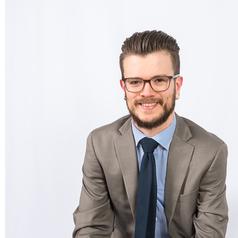
Ryan Burns
Associate Professor of Geography, University of Calgary
I am Associate Professor in University of Calgary’s Department of Geography, a Fellow with the Royal Canadian Geographical Society, and a AAAS Science & Technology Policy Fellow at the National Science Foundation's National AI Research Institutes. My research interests are in the social, institutional, and urban transformations of big and open data, smart cities, digital humanitarianism, and related digital spatial phenomena. My research program interrogates the social and institutional struggles around knowledge production emerging in the context of these new spatial-technological developments.
Less ![]()
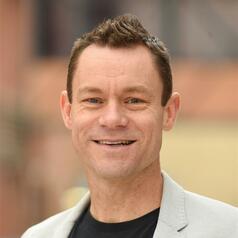
Ryan Causby
Dean of Programs (Allied Health), University of South Australia
I am a lecturer, researcher and practicing podiatrist with an interest in Clinical Biomechanics, Motor Control and Musculoskeletal disorders. I have worked in both rural and urban settings including: the Northern Far Western Regional Health Service (covering regions from Ceduna to Roxby Downs), the Royal Adelaide Hospital and The Queen Elizabeth Hospital. I completed my PhD thesis investigating the role of dexterity in scalpel skill learning amongst podiatrists.
Less ![]()
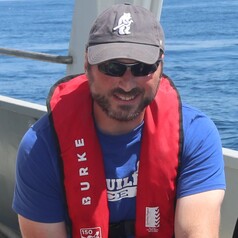
Ryan Day
Senior research fellow, University of Tasmania
Ryan Day is one of the Animal Ethics committee Chairs and a Research Fellow in Marine Animal Physiology and Biochemistry at University of Tasmania’s Institute for Marine and Antarctic Studies. One of his primary research areas are in measuring the impact of seismic surveys on marine invertebrates. In this field, his research has used quantification of acid-base physiology, haemolymph electrolyte and mineral homeostasis, immune function and oxidative stress to assess the health status of marine invertebrates including lobster, scallops to evaluate the impact of exposure to seismic air gun signals. The outcomes of this research have been incorporated by the federal regulatory body (NOPSEMA) for impact assessments to minimise harm to marine life. In his second primary research area, Ryan investigates approaches for reducing post-harvest loss in marine fisheries, with a current focus on the live export southern rock lobster fishery. This research developed in response to reports of large-scale mortalities within the lobster processing industry. In conducting an assessment of haemolymph physiology, including biochemistry and immune function, his research in collaboration with a veterinary epidemiology team, determined the cause of mortality was sub-optimal holding and handling conditions, rather than a pathogen as was initially feared. In response, Ryan authored an industry best practices guide with recommendations on handling and water quality management. Implementation of these recommendations has been attributed to eliminating mass mortality events and halving mortality rates by industry partners. This work has recently been extended to the fishing vessel component of the industry and projects to apply this research to other marine invertebrate fisheries are in development. In addition to his recent work with invertebrates, Ryan’s PhD research focused on digestive physiology in marine fishes, in which he characterised digestive strategies in fishes that lack a stomach.
Less ![]()
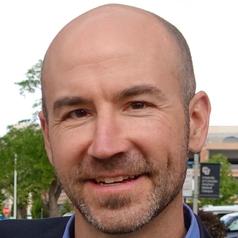
Ryan Elmore
Associate Professor of Business Information and Analytics, University of Denver
Ryan Elmore is an associate professor in the Department of Business Information and Analytics, Daniels College of Business. Prior to Daniels, he worked as a Senior Scientist in the Computational Sciences Center at the National Renewable Energy Lab in Golden, Colorado. He has also held positions at the Australian National University, Colorado State University, and Slide, Inc. Elmore’s research interests include statistics in sports, nonparametric statistical methods, and energy efficient high-performance computing. He is currently an Associate Editor for the Journal of Quantitative Analysis of Sports (2015–present).
Ryan’s work has been featured in The Economist, The Wall Street Journal, The Telegraph, The Guardian, and The Fried Egg Podcast.
Less ![]()
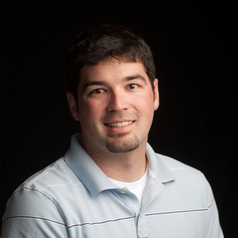
Ryan Herzog
Associate Professor of Economics, Gonzaga University
Professor Herzog was hired in fall of 2009. Professor Herzog is a native Washingtonian, born in Tacoma, Washington where he spent most of his life around the Puget Sound. Professor Herzog's academic interest range from topics related to international finance, macroeconomics, and regional business cycles. He loves advising students on graduate school options or helping them on their internship/career paths. In the classroom he diverges from the traditional lecture style through interactive assignments and in class problem sets. He encourages student participation during lecture and keeps students active in the classroom through the use of technology and economic experiments.
Less ![]()
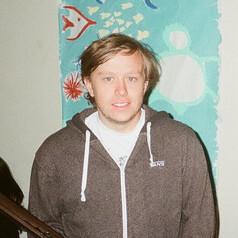
Ryan Keeley
Postdoctoral Scholar in Physics, University of California, Merced
I do research in the fields of both astroparticle physics and cosmology, and I specifically focus on developing statistical tools to test LambdaCDM, a theory known as the standard model of cosmology. As a cosmologist, I use observations of astrophysical systems, like galaxies, to test our understanding of the fundamental laws of physics. As an astroparticle physicist, I work to identify the particle nature of dark matter and how it might interact with the standard model of particle physics. I’ve worked on developing tests of dark matter, dark energy, inflation, and modified gravity.
I am am a postdoctoral researcher at the University of California, Merced working with Anna Nierenberg. I also have an associate member status at the Center for the Gravitational-Wave Universe. I was a postdoctoral researcher studying cosmology at the Korea Astronomy Space Science Institute with Arman Shafieloo. Previously, I earned my PhD at UC Irvine working with Kevork Abazajian and also collaborating with Manoj Kaplinghat.
Less ![]()

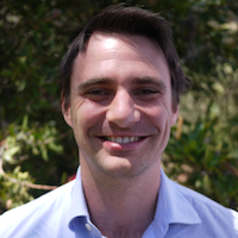
Ryan Manuel
Dr Ryan Manuel is a postdoctoral fellow at the Australian Centre on China in the World, The Australian National University. His research looks at how power is exercised in the Chinese political system, and how that exercise of power affects China's domestic and foreign policy. His most recent book was A New Australia-China Agenda, with Geremie Barmé.
Less ![]()
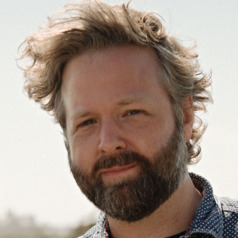
Ryan McGrady
Senior Researcher, Initiative for Digital Public Infrastructure, UMass Amherst
My current research with the Initiative for Digital Public Infrastructure at UMass Amherst focuses uses mixed methods to study large internet platforms like YouTube, Reddit, and TikTok. It began as an effort to better understand harmful speech on these sites, but quickly turned into a large project to address major gaps in research. To start, how can we talk about how much harmful speech is on YouTube if nobody seems able to properly characterize YouTube as a whole. We devised a random sampling method which we used to publish what we think is the best characterization of YouTube to-date. We're now using our methods to study differences between language communities (how does English YouTube compare to Hindi or Russian YouTube, for example). I'm also affiliated as a researcher with Media Cloud, a news database and media analysis platform.
At NCSU, my work primarily focused on Wikipedia, its community dynamics, and the systems of rules which enable it to work. My dissertation examined what I called the "production of encyclopedic authority" throughout the history of encyclopedias and on Wikipedia in particular. While a grad student, I taught media studies and communication courses and worked for a few years running programs at a nonprofit bridging Wikipedia and higher education.
Less ![]()
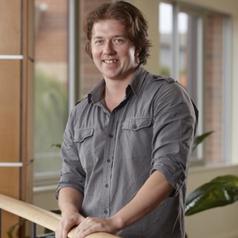
Ryan Mead-Hunter
Senior lecturer, School of Population Health, Curtin University
Dr Ryan Mead-Hunter is a senior lecturer in the Occupation, Environment and Safety discipline group in the School of Population Health at Curtin University. His research interests include air quality, aerosol science, toxicology, and filtration technology. He has been involved in the measurement of a wide range of occupational and environmental aerosols, as well as common airborne pollutants, and their effects on health.
Less ![]()
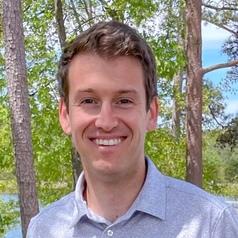
Ryan Polk
Assistant Professor of Accountancy, Clemson University
Professor Ryan Polk joined the Clemson faculty in July 2023 after earning his Ph.D. in Accounting from the University of Alabama. Before doctoral work, he worked in EY's tax service line in the Tysons, Virginia office serving clients in the biotechnology, manufacturing, and hospitality sectors. Professor Polk is a licensed CPA in the states of Virginia and South Carolina. Professor Polk researches issues related to taxpayer behavior, tax enforcement, public shareholder filings, and capital markets.
Less ![]()

Ryan Riedmueller
Clinical Legal Fellow, Stanton Foundation First Amendment Clinic, Vanderbilt University
Less ![]()
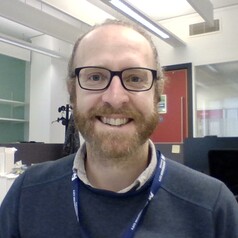
Ryan Scoats
Lecturer in Sociology, Birmingham City University
Dr Ryan Scoats gained his BA (Hons) and Master of Research from the University of Bath, and his PhD in Sociology from the University of Winchester (2017). He has previously been a lecturer in Sports Sociology at both Wolverhampton and Winchester Universities, lecturer in Sociology at Coventry University, and a researcher at Birmingham City University in the Faculty of Health.
Much of Dr Scoats’ research focuses on people’s experiences of threesomes. Utilising a sociological perspective, his threesome research starts to fill the gap in academic knowledge around group sex as well as reducing the stigma around this behaviour and encouraging more open and honest dialogues around sexual desires. It also highlights how people come to have threesomes, their motivations, and what these sexual encounters tell us about wider changes and developments in society.
He also conducts research in the broader areas of gender, sexuality, and relationships. Some of his recent research focuses on consensual non-monogamy and access to healthcare, women’s experiences in the male dominated arena of modern tabletop board games, and young men’s expressions and displays of masculinity.
Less ![]()
- Market Data























